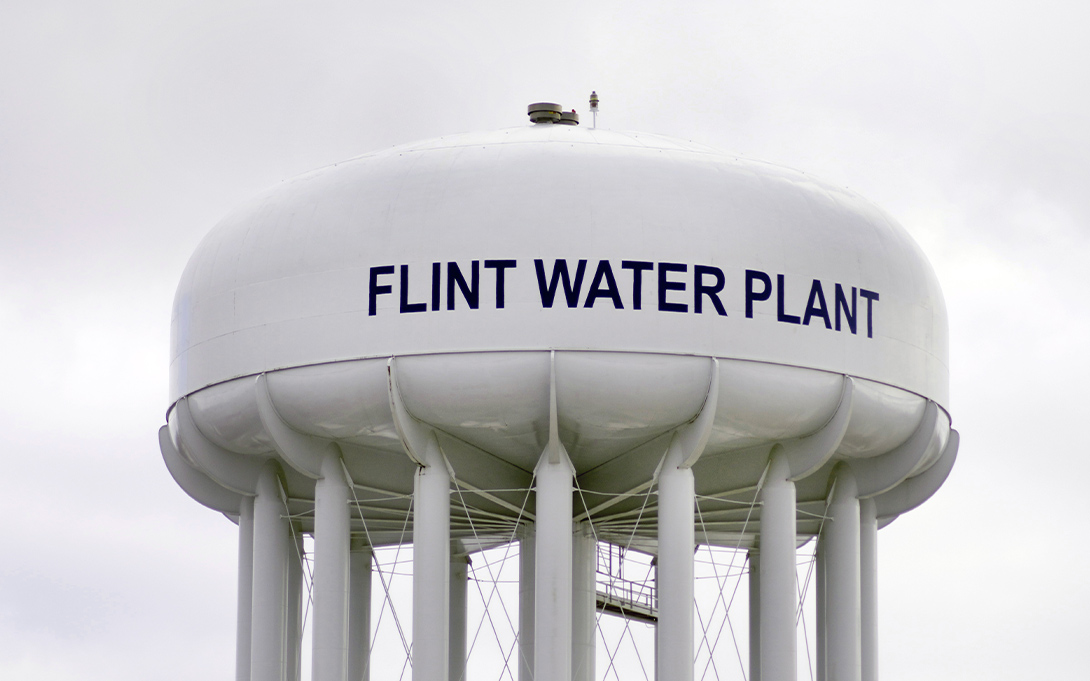
Math achievement for school-age children in Flint decreased and the proportion of children with special needs increased as a result of the Michigan city's water crisis during 2014-16, according to a new University of Michigan study.
Those are the main conclusions from research that for the first time examined data concerning the effects of the lead-in-water crisis on the academic outcomes of school-age children.
Still, there was little difference in the academic outcomes of school-age children living in homes with lead pipes compared to those in homes with copper pipes, suggesting that community crises may have effects on health and well-being beyond those tied directly to exposure to lead in the water supply.
Authors of the report matched student-level longitudinal data from the Michigan Department of Education, via the Michigan Education Data Center, and data from household-level service line inspections conducted by Flint's Fast Action and Sustainability Program.
The Michigan Education Data Center, managed by the Education Policy Initiative (EPI) at the Ford School of Public Policy, is a secure data clearinghouse that helps researchers use the state of Michigan's education data to answer critical questions that improve outcomes for students.
Report authors Brian Jacob and Samuel Owusu of EPI, Sam Trejo of Stanford University and Gloria Yeomans-Maldonado of the University of Texas said "the findings provide some insight into the ways in which experiencing a community crisis profoundly affected the educational trajectory of Flint children."
"These results have salient implications for education in communities that undergo major crises," said Jacob, professor of public policy, economics and education. "Beyond the health implications of the lead in the water, the society in Flint was shaken, and that sense of peril may have created the conditions for the learning challenges we chronicle."
Specifically, researchers found a moderate decrease in math achievement for school-age children in Flint when compared to students in Michigan districts with similar characteristics.
The report also finds the crisis led to a 9% increase in the proportion of students with qualified special educational needs when compared with similar districts. The study notes three main policy implications:
-
Lead exposure is not the only way the crisis disrupted the educational trajectories of Flint's children. As increased infrastructural investments take hold across the country to improve water safety, policymakers must also consider how to address societal damage felt by communities experiencing lead water crises that are not directly tied to lead exposure.
-
Student outcomes in the long run were affected in part because these children lived in a city grappling with a community water crisis. Because water safety is such an important facet of overall health, even the thought of any measurable contamination can reasonably spark community anxiety and create a stressful learning environment for a community's youngest residents. Policymakers should think about how to invest in cost-effective preventative measures that minimize both real and perceived threats of water contamination in the future.
-
Research efforts to better understand the full effect of Flint's water crisis on academic outcomes for school-age children need to continue. As the city continues to test water in businesses and other public facilities for lead, more data will become available and researchers will have the ability to help broaden understanding about the extent to which lead exposure outside of the home has affected school-age children and their academic outcomes.
Study: Understanding the Psychosocial Effects of the Flint Water Crisis on School-Age Children in Michigan
Working paper (with complete data/methods): The Psychosocial Effects of the Flint Water Crisis on School-Age Children
